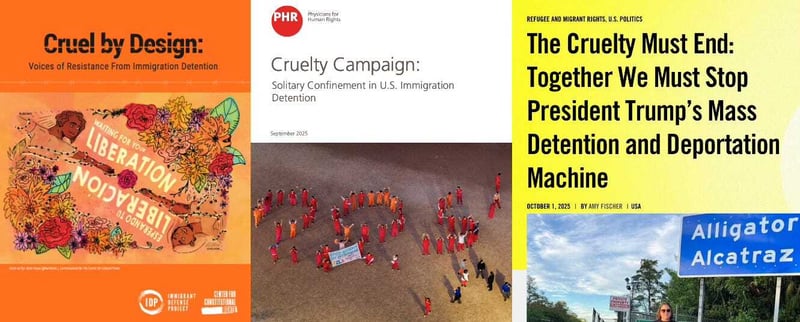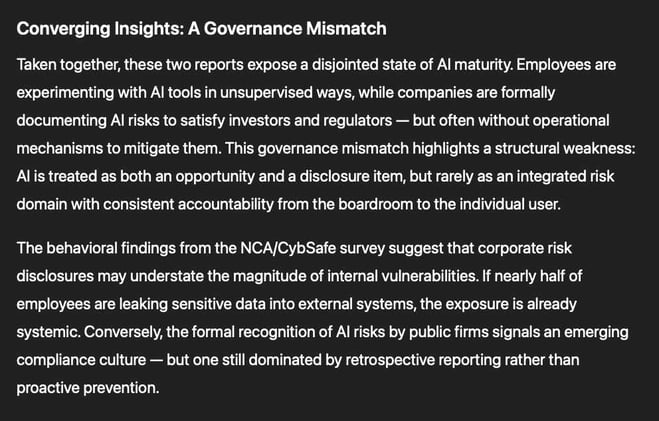- Pascal's Chatbot Q&As
- Archive
- Page 24
Archive
The 2025 State of AI Report. Scholarly publishers are no longer just gatekeepers of human-generated content—they must become curators and verifiers of machine-derived knowledge.
The future of scientific publishing hinges on how swiftly and wisely publishers embrace this new paradigm. AI not only assists with knowledge production but also generates, validates, and teaches it.

Regulators must treat AI-generated political disinformation as a matter of national security and democratic survival.
Anything less than robust, coordinated, and enforceable safeguards would be an invitation for future abuses, more sophisticated deepfake operations, and the gradual erosion of truth itself.

For Silicon Valley to be truly patriotic its actions must transcend rhetoric. True patriotism for corporations of this scale & influence isn't measured in press releases or philanthropic contributions.
The future prosperity & security of the United States may well depend on whether these corporate titans can evolve from being disruptive adolescents to responsible stewards of the American enterprise.

Mekic v. X: the case is a microcosm of broader tensions: corporate secrecy vs. democratic oversight, algorithmic power vs. individual rights, and platform control vs. journalistic freedom.
Mekic was “shadowbanned” by X—his communications were limited without explanation. He demanded to know why, citing GDPR rights to personal data and to transparency about automated decision-making.

Report: Detachment of scientific conclusions from human authorship or oversight, especially with generative models, raises questions about accountability, originality, and reproducibility.
Over-reliance on AI may lead to the narrowing of scientific questions explored, favouring well-documented areas where AI performs better. AI may radically change what counts as scientific knowledge.

GPT-4o: The Apostolic Exhortation Dilexi Te is more than a theological document. The Trump administration’s policies, when viewed through this lens, fall grievously short of the Gospel ideal.
Invoking divine blessing while enacting laws that harm the poor, ignore the sick, criminalize the migrant, and reward the powerful, amounts to a betrayal of the very faith it claims to defend.

GPT-4o: Martinez-Conde v. Apple is a meticulously constructed and potentially explosive copyright infringement case that places Apple’s AI ambitions under judicial scrutiny.
Given the strength of evidence, the precedent of similar cases, and the reputational risks at stake, the likely outcome is either a plaintiff-friendly settlement or a partial win for the class...

Attackers can exploit these latency variations to infer sensitive information, including: Training data membership (e.g., whether a particular input was part of the training set).
GateBleed can serve as a forensic tool for litigants to demonstrate improper model training practices, shifting the burden of proof onto AI companies.

GPT-4o: What happens in the U.S. does not stay in the U.S. The normalization of mass detention, surveillance, and expulsion has already inspired copycat regimes globally.
As the U.S. abandons human rights commitments, it destabilizes the global architecture meant to protect them. The outlook is deeply concerning.

Employees’ enthusiasm for AI-driven productivity collides with the institutional inertia of large firms trying to control an unpredictable technology.
The next frontier of corporate governance lies in closing this gap — transforming awareness into accountability and risk disclosure into demonstrable resilience.

Internet Archive. The Belgian decision marks a strategic win for publishers, showing that even large and respected platforms can be held accountable when they operate outside licensing frameworks.
However, it also highlights the importance of measured, rights-based enforcement that respects user freedoms and encourages legitimate access.

Standards are the bridge between AI principles and practical implementation. They operationalize abstract values into testable metrics, certification schemes, and technical specifications.
Standards are emerging as the pivotal mechanism to operationalize ethics, ensure interoperability, and enable safe deployment at scale. A roadmap to align technical progress with human values.












